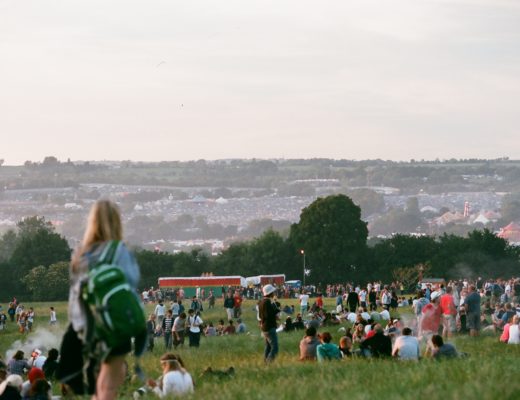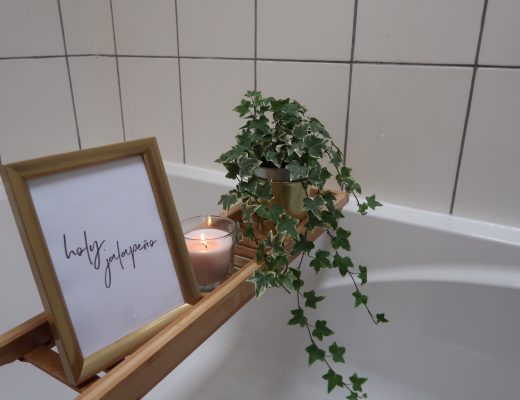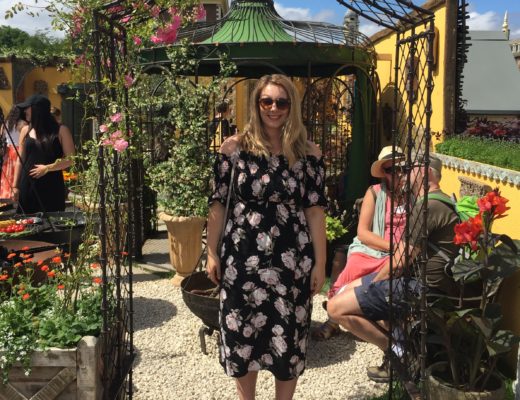With the recent climate strikes taking place around the world, in relation to the ever growing anger around global government policy around climate change, I wanted to pull together a blog post about ecotourism, being an eco-tourist and how our decisions as travellers and humans, impact on the environment.
After all travel and all that it encompasses is not the most environmentally friendly of affairs and therefore we should all be eco tourists in some sort of way.
As an eco-tourist you decide to travel in a way that shows respect to nature and does not contribute to its degradation and play a role in environmental conservation. Instead of taking, taking and taking from places around the world, we need to find ways to give back, and improve the quality of life for these places and people.
It’s so important being an eco tourist! Ecotourism allows countries and communities to build their economies without harming the environment, which means that local wildlife can thrive and visitors can enjoy untouched destinations.
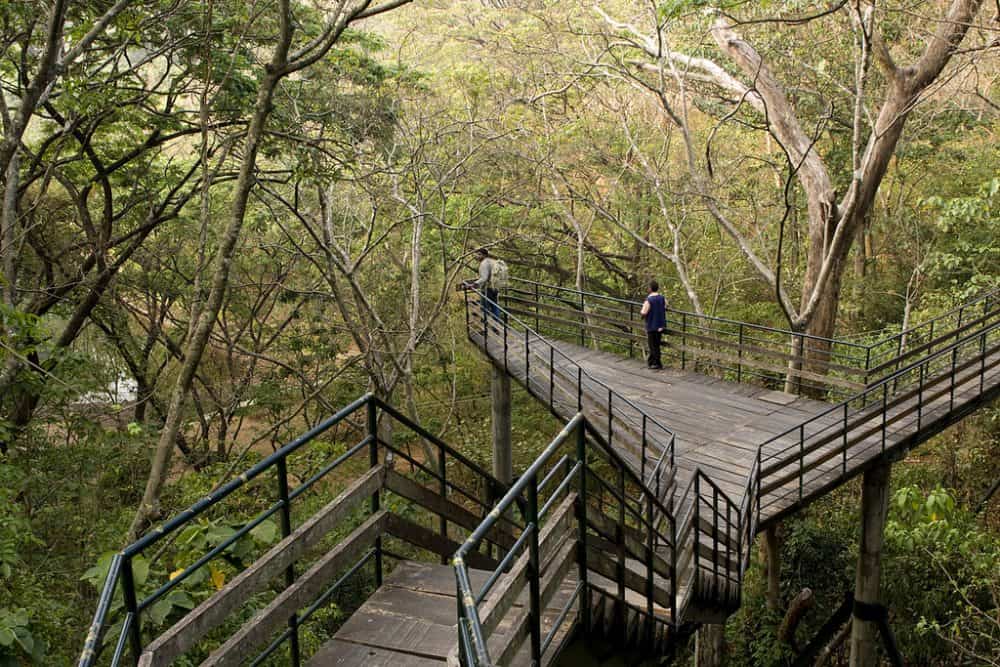
The school strike for climate change, also known variously as Fridays for Future is an international movement of school students who take time off from class to participate in demonstrations to demand action to prevent further global warming and climate change. Publicity and widespread media coverage was began after the now iconic Swedish schoolgirl Greta Thunberg staged a protest in August 2018 outside the Swedish parliament, holding a sign that read “Skolstrejk för klimatet” “School strike for the climate”.
Ever since this monumental movement in 2018, Greta has become the face of an ever-growing climate change strike across the world.
It’s become ever more prominent over the last 12 months that we all need to play a part in protecting the world we live in. And although at first one person’s actions may seem irrelevant to the change, this is simply not true. And every small action we can take, as an individual, can make a huge difference.
Take Greta’s story for example… only 12 months ago Greta was sat outside parliament protesting alone, and in September this year over 4 million people, across 178 countries took to the streets around the world, to protest on climate change in response to her first initial strike. That’s eco-tourism at it’s best!
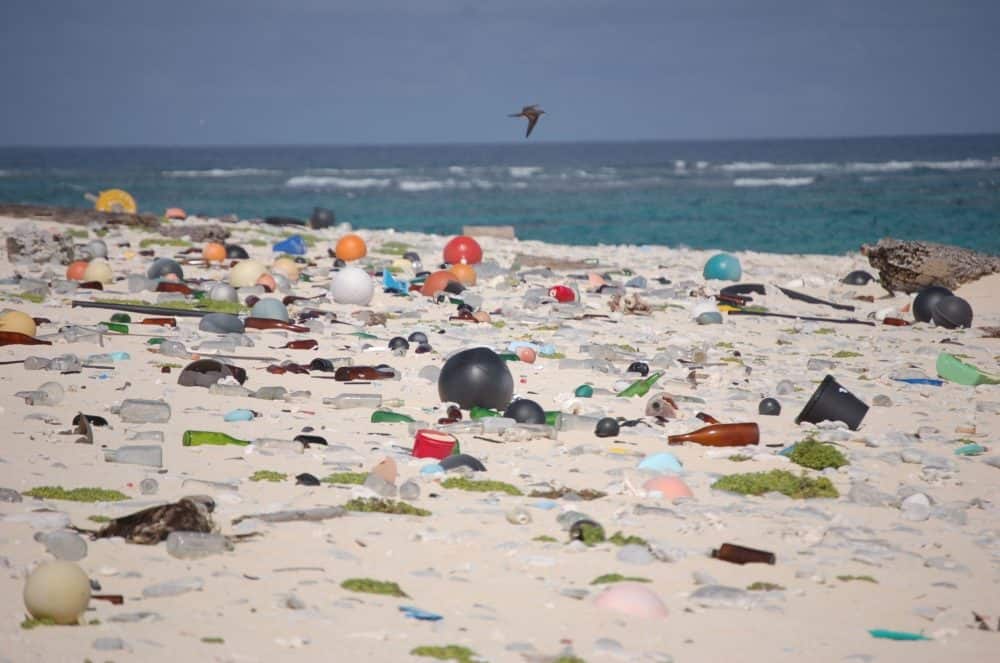
Here are 12 tips for becoming an eco-tourist
Refill your water bottle
Over the last 12 months, the thing I do most is refilling my reusable water bottle against buying plastic water bottles on my travels. You can find water stations at most airports these days and I always ask cafes to fill it up for me too. Just imagine the millions of empty bottles that go in to the oceans each year, and for only £10 you can stop this happening, by buying your ow =n refillable water bottle. BUY YOUR BOTTLE HERE
Eat less meat
The Environmental Working Group found that red meat is responsible for 10 to 40 times as many greenhouse emissions as common vegetables and grains. If the grain fed to livestock were fed to people, we could feed 800 million people! I’ve been cutting out meat over the past 12 months, and now try to eat only chicken or turkey, no more than twice a week. I don’t want to go vegetarian or vegan, but every little helps right?
Educate everyone you meet
The easiest way to protect and preserve our planet is through education. And therefore it’s important to talk about climate change to everyone you meet, whether they live in the western world or not. You may find in lower income earning countries climate change is hardly ever spoken about, so why not talk about it openly and see what steps they can also make to support the protection of our planet.
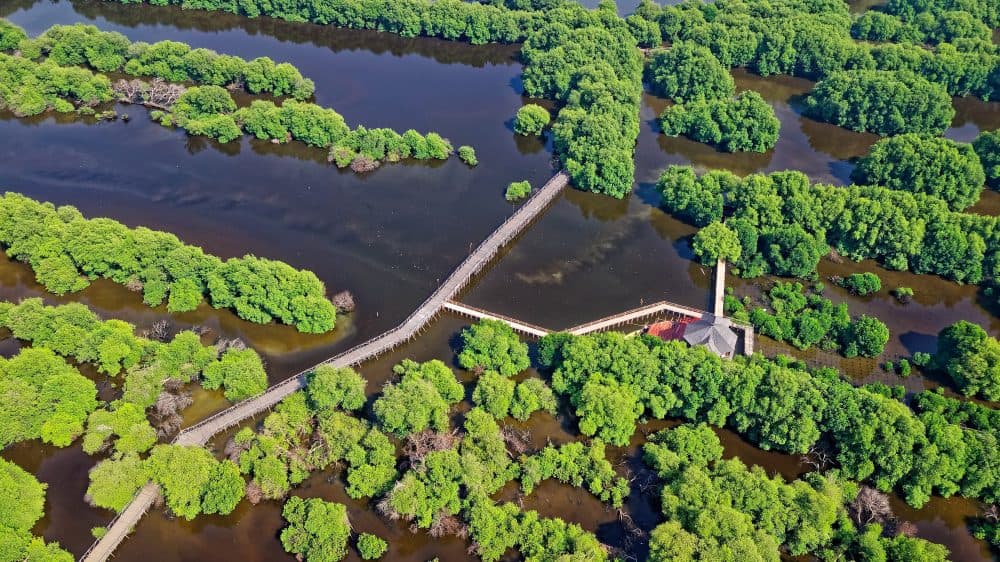
Save the water
We have an abundance of water in the western world, but we also use an astonishing amount just in our kitchens and bathrooms. 65% of what we use is in the bathroom, through brushing our teeth, showering, having a bath, flushing the toilet etc. My top tip? Have shorter showers, don’t leave the tap running whilst you brush your teeth and take less baths.
Buy local and seasonal produce
When you travel, try to steer away from buying western food, and instead opt for the local or seasonal produce, as it means that over time the cost financially and environmentally to import goods will lessen, and countries will start to import less and use the goods they grow there.
Often many tourist destinations only import western foods for the tourists, so let’s stop buying and demand goes down. You are also more likely to be helping the local economy rather than giving your money to a multi-million dollar supermarket from the USA in a different country.
Don’t throw it away
From packing to plastic, and from kitchen scraps to old junk, it can all be repurposed or re-used. Or even recycled. The more aware we are about what we throw out, the less rubbish we should have in our bins. Channel your inner grandmother and see how many times things can be reused or repurposed than thrown away.
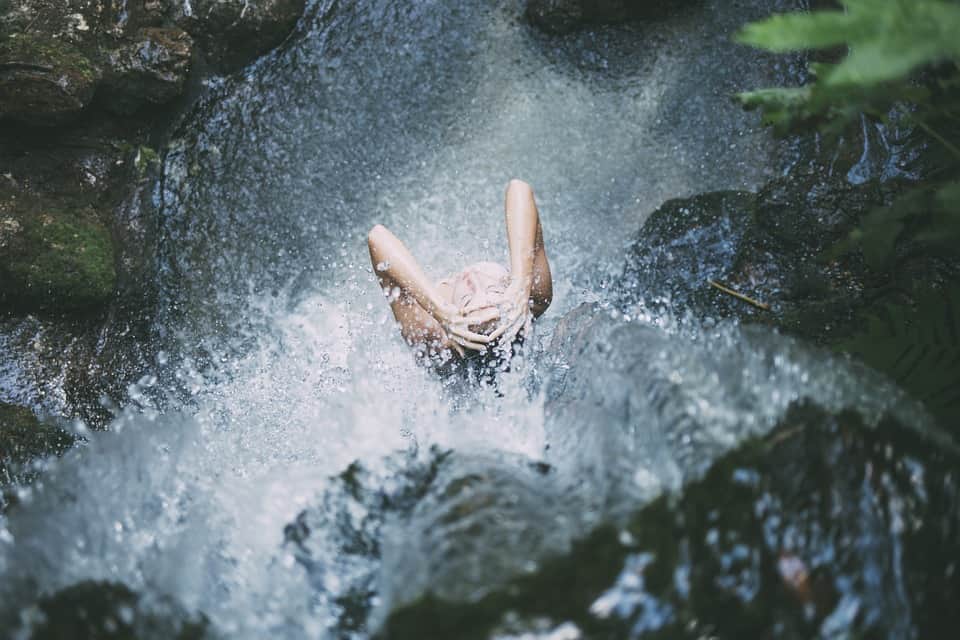
Offset your flying
It’s a topic which has gained traction over the past 12 months, due to the amount of carbon we set off in to the air when we travel, especially by flying. There are many ways to offset your travel through airline initiatives and through the growing of trees around the world. Most airlines now offer you the chance when booking to offset your journey, I’ve done it a few times through Skyscanner now. But if this isn’t an option, you could also sponsor a tree planting group.
Stop eating diary!
As someone who is dairy intolerant, it’s incredibly insightful to see how we don’t need diary as humans. Yes we need calcium but we can find this from alternative foods. 66% of all crop calories goes to cows, and cow farts account for 28 per cent of all methane emissions related to human activity. We don’t need cow’s milk as adults, only as babies and it’s amazing to see how much diary is used all over the world unnecessarily.
Plastic consumption!
Thanks to the king David Attenborough, the knowledge around plastic consumption and more importantly plastic waste is a topic of high interest at the moment. In the western world, it’s astonishing how much plastic we use, without even knowing.
From packaging at the post office, to parcels, to importing, to food wrapping – the list is endless. Supermarkets are now trying to cut their plastic and shops like Morrison’s are trialling plastic-free grocery areas. Supermarkets also now charge for plastic bags which is amazing, and coffee shops are asking customers to drink in, or use reusable coffee cups instead. These are all easy steps towards becoming a zero waste traveller.
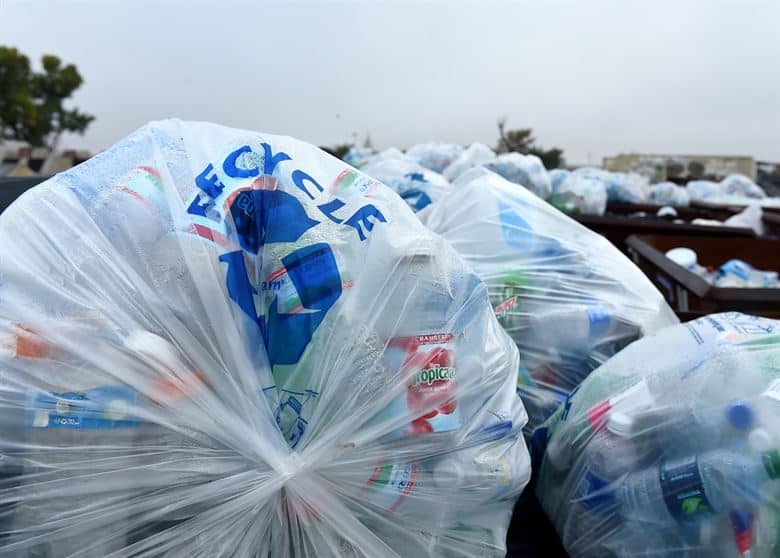
Save the bees!
Believe it or not, you have a bee to thank for every one in three bites of food you eat. “Honey bees — wild and domestic — perform about 80 percent of all pollination worldwide. A single bee colony can pollinate 300 million flowers each day. Grains are primarily pollinated by the wind, but fruits, nuts and vegetables are pollinated by bees. Seventy out of the top 100 human food crops — which supply about 90 percent of the world’s nutrition — are pollinated by bees.” – Statistics found on www.greenpeace.org
Litter pickers
When I was in The Maldives last month, there was a Litter Clean Up day on 21 September, where locals and tourists from all over the country got together on their islands, or a neighbouring island and they went on a day-long litter pick to clean the plastic and other debris from the beaches and oceans. If we all just grab one plastic bottle or piece of trash a day from the beach or wherever our adventuring takes us it is a simple task that will go a long way in cleaning up this world we live in.
Walking the way
When you arrive in a new place it’s so easy to just jump in an Uber or taxi to your destination. My advice would be to google before you arrive public transport and see if it’s just as easy to travel via train or bus. This alone cuts emissions in to the air and automatically means you are having the planet, one bus journey at a time. But even better than this? Walk! Download Google Maps and get walking! Not only are you helping the planet but you might also uncover some hidden gems, you would most likely miss in the Uber.
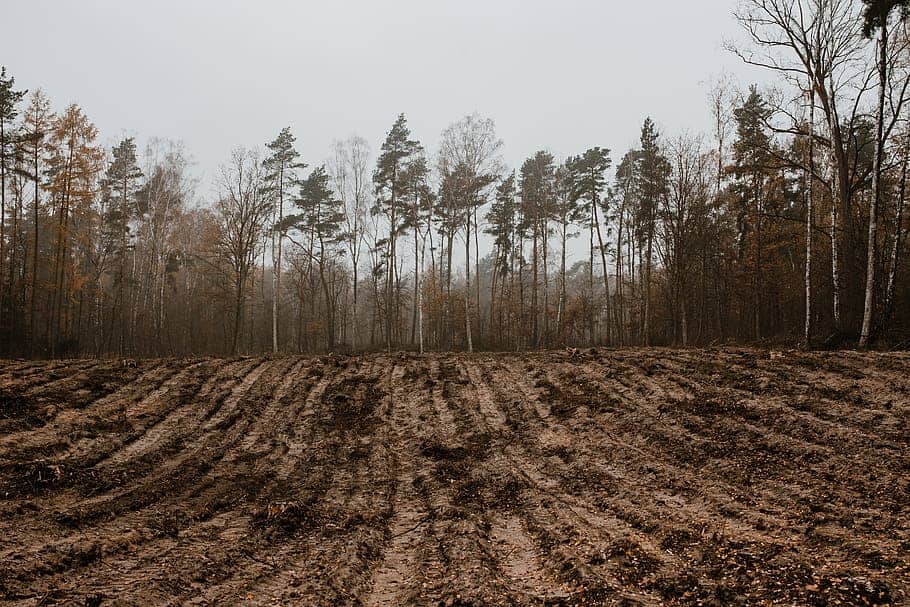
And when you’re home….
As the world struggles to cope with the effects of climate change and global warming, governments around the world have started to put more emphasis on the role of homeowners in meeting their carbon emission targets.
According to a report by the BBC, households account for almost 30% of the UK’s carbon emissions. This means that, if meaningful results are to be seen, households across the UK need to get on board and start reducing their output.
In working towards a more sustainable future, homeowners should focus on following the three R’s of recycling, which are Reduce, Reuse, and Recycle.
Reusing items, including packaging from items that have been bought, is a great way to save on the amount of household waste that is produced every month.
Large amounts of energy are expended daily to supply, treat, and transport water to homes across the UK. By embracing water conservation techniques in the home, homeowners can minimise their impact on the entire system.
Thanks to advances in technology, the appliances in our homes now consume less energy than ever before. This means that one of the easiest ways to reduce a home’s carbon footprint is by updating any older appliances to more energy-efficient models.
Appliances such as refrigerators, air conditioners, heaters, and dishwashers have improved tremendously in the past 10 years, so these items should be at the top of the list of things to upgrade in the home.
Another upside to choosing to upgrade to energy-efficient appliances is that many insurance providers offer reduced premiums on appliances that are energy efficient. Homeowners should therefore ensure that their appliance insurance plan is updated to account for any new appliances.
It is also recommended that homeowners compare insurance prices regularly so that they can ensure they are getting the best deal possible. Homeowners can compare their appliance insurance at quotezone.co.uk, who offer a quick and easy way to compare premiums from a range of insurance providers across the UK.
Sign up to AirBnB with this link and receive a £23 off your first booking.
To receive my articles and reviews straight to your inbox SUBSCRIBE HERE.
Did you know I also vlog my trips? Make sure you subscribe to my YouTube channel so you get alerted when all my travel videos goes live… CHECK THEM OUT HERE
Thank you for reading and as always happy adventuring!
If you’ve enjoyed this post, please share it for me with all your friends and family!
Sophie X

